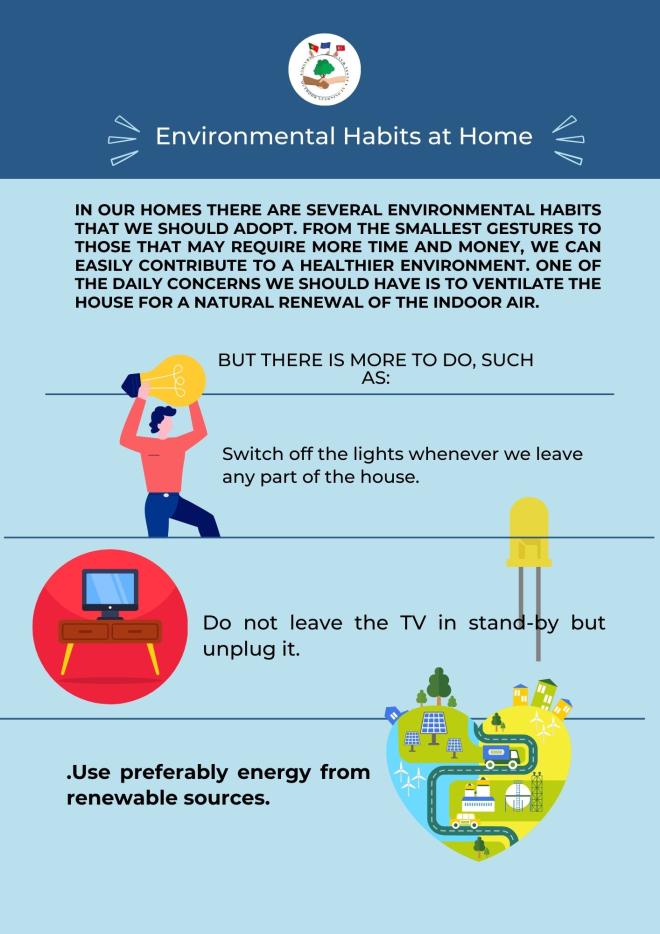Good Practice
Created by Rui SANTOS
Last updated by
Rui SANTOS
1 year 10 months ago
Good sustainable school practices are important to promote environmental awareness among students and the whole school community, as well as contribute to the preservation of the environment. The schools involved in this erasmus+ project "Outdoor Learning in a Funny Way" have adopted good sustainable practices that promote:
- Energy saving
- Encouraging conscious use of electricity by turning off lights in empty/interval rooms;
- Using efficient light bulbs, taking advantage of natural lighting and switching off equipment when not in use.
- Water saving
- Promoting conscious use of water, carrying out educational campaigns about the importance of this resource and encouraging practices such as turning off taps when brushing teeth, reusing rainwater and maintaining taps and pipes.
- Reduce paper consumption
- Encouraging the use of digital resources, such as electronic documents, e-mails and online platforms, to reduce paper printing.
- Using recycled paper or paper certified for the sustainable maintenance of forests.
- Selective waste collection
- Implementing selective waste collection at school, providing identified containers for the correct separation of recyclable and non-recyclable materials.
- Also promoting education on the importance of recycling and the destination of waste.
- School garden
- Encouraging the creation of a school garden, where students can learn about organic agriculture, growing healthy and toxic-free food.
- Using the garden for practical lessons and as an interdisciplinary teaching resource.
- Educational Outdoor activities
- Developing educational activities and outdoor projects that address topics such as sustainability, environmental preservation, biodiversity, climate change and conscious consumption.
- Promoting lectures, debates, exhibitions, visits to environmental institutions and research projects with a collaboration of other stakeholders.





